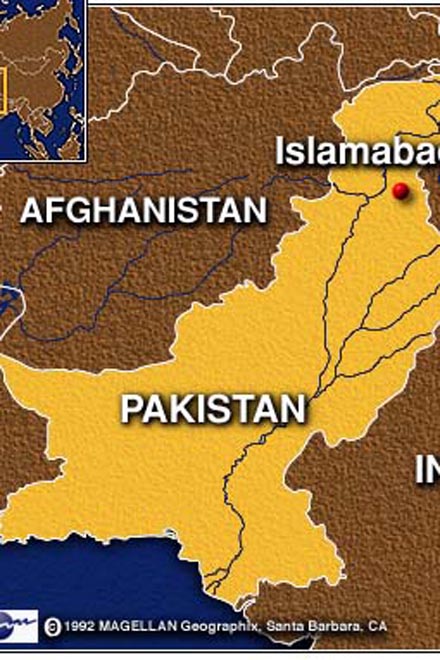Pakistan rejected on Friday a suggestion from the former head of the U.N. mission in Afghanistan that the arrest of senior Afghan Taliban members in Pakistan may have disrupted talks with U.N. representatives, Reuters reported.
Norwegian Kai Eide, who stepped down this month, said talks with the Taliban dried up several weeks ago after more than a dozen Taliban were captured in joint U.S.-Pakistan operations.
The most prominent Afghan Taliban leader picked up in Pakistan was top military strategist Mullah Abdul Ghani Baradar.
Since the announcement last month of his arrest in Karachi by U.S. and Pakistani agents, there has been speculation Baradar might have been talking to Kabul in recent months and that might subsequently have led to his arrest.
Analysts say Pakistan has long seen the Afghan Taliban as a tool to promote its interests in Afghanistan, where it wants to see a friendly government in power and to limit the influence of old rival India.
With momentum building for some sort of talks with the Taliban to end a war Western commanders say they cannot win militarily, Pakistan wants to be in control of any reconciliation process to promote its aims, analysts say.
Eide told the BBC World Service in an interview that he thought speculation Pakistan wanted to end the talks because it wanted to be in control of the process was probably right.
But a Pakistani government spokesman rejected that.
"The fact of the matter is that Mullah Baradar's arrest was a joint operation with the U.S. and had nothing to do with talks or reconciliation," said Foreign Ministry spokesman Abdul Basit.
Pakistan has long called for talks to end the Afghan war and Eide's comments were a misinterpretation of its aims, he said.
"Pakistan is committed to support an Afghanistan-led re-integration and reconciliation process so any other contentions, we believe, are a misrepresentation and misinterpretation of our intentions," Basit said.
"NEGATIVE"
Eide said contact with the Taliban began in early 2009, paused during Afghan elections in August and picked up after the vote until the arrests in Pakistan all but halted the process.
"The effect of that (the arrests) ... was certainly negative on our possibility of continuing the political process," he said.
Eide said his team met senior Taliban leaders and officials who had the authority of the group's ruling council, the Quetta Shura, named after the Pakistani city where some leaders are believed to be based.
Talks with the Taliban were "long overdue" and the arrests may have hardened the insurgents, making it harder to get their leaders to negotiate, Eide said.
"Do I believe that Pakistan plays the role it should in promoting a political dialogue that is necessary for ending the conflict in Afghanistan? No, the Pakistanis did not play the role that they should have played," Eide said.
In Washington, U.S. Special Representative for Afghanistan and Pakistan, Richard Holbrooke, said Eide had mentioned the talks in a "general way" but that the United States had no involvement in the meetings.
Holbrooke declined to comment on whether Pakistan's recent arrests had thwarted talks.
But he praised Islamabad for the recent arrests and said it was putting more pressure on the Taliban in Afghanistan.
"This is a good thing. For the simplest of reasons, it is good for the military efforts that are under way in Afghanistan," said Holbrooke.
Holbrooke reiterated U.S. support for what he said was an Afghan-led reconciliation program with all Afghans, including those fighting with the Taliban. He declined to elaborate.
The idea of talking to a group that has killed hundreds of coalition soldiers and has a long record of human rights abuses is sensitive, particularly in Britain and the United States.
The United States has backed attempts to persuade lower- and mid-level insurgents to stop fighting, but has resisted dealing with Taliban leaders.
Afghan President Hamid Karzai has announced an effort at reconciling with Taliban leaders, leading to speculation peace moves are afoot. The Taliban have publicly spurned his overtures.
The Afghan government denied this week a report that it had been holding secret talks with Baradar when he was arrested.






